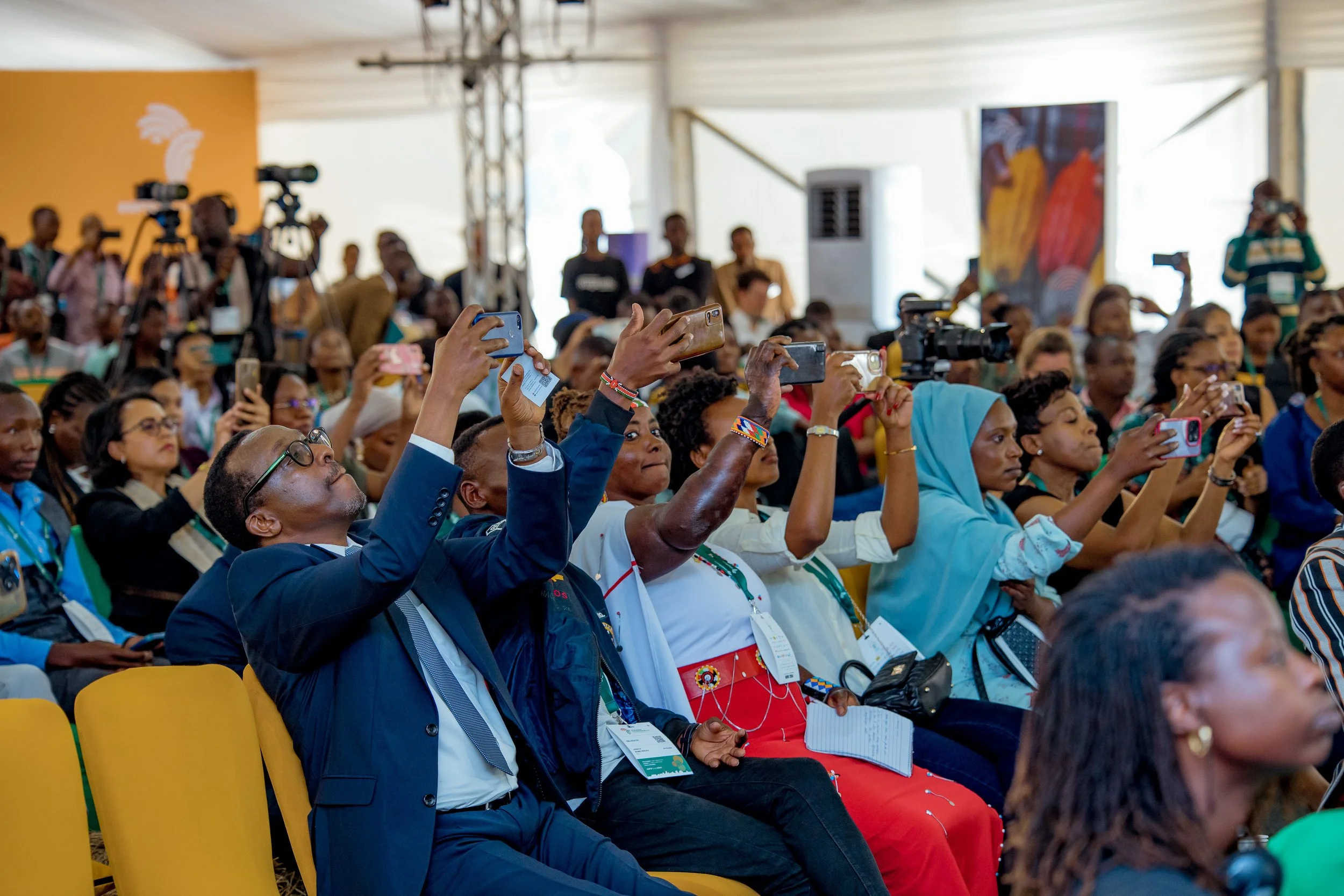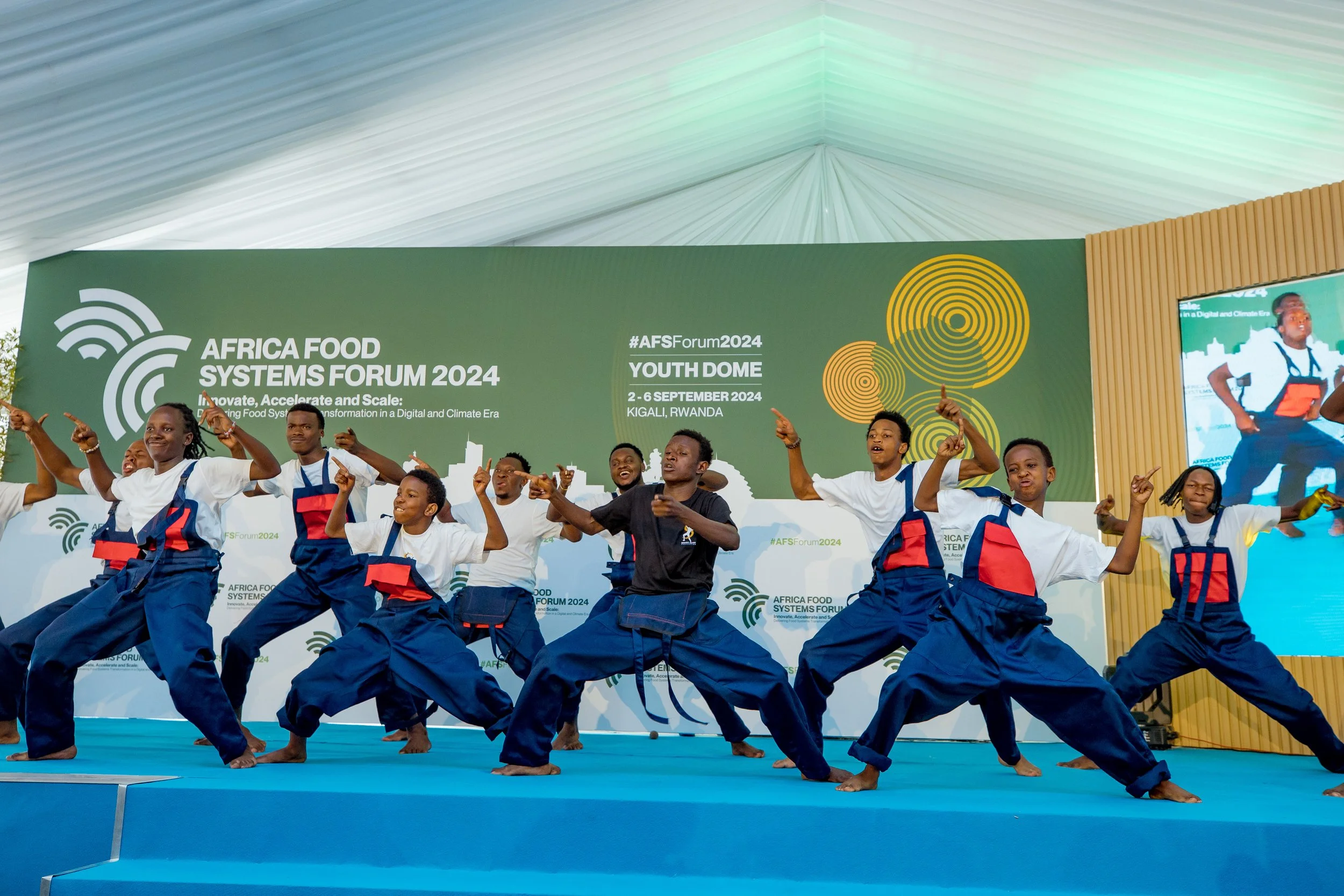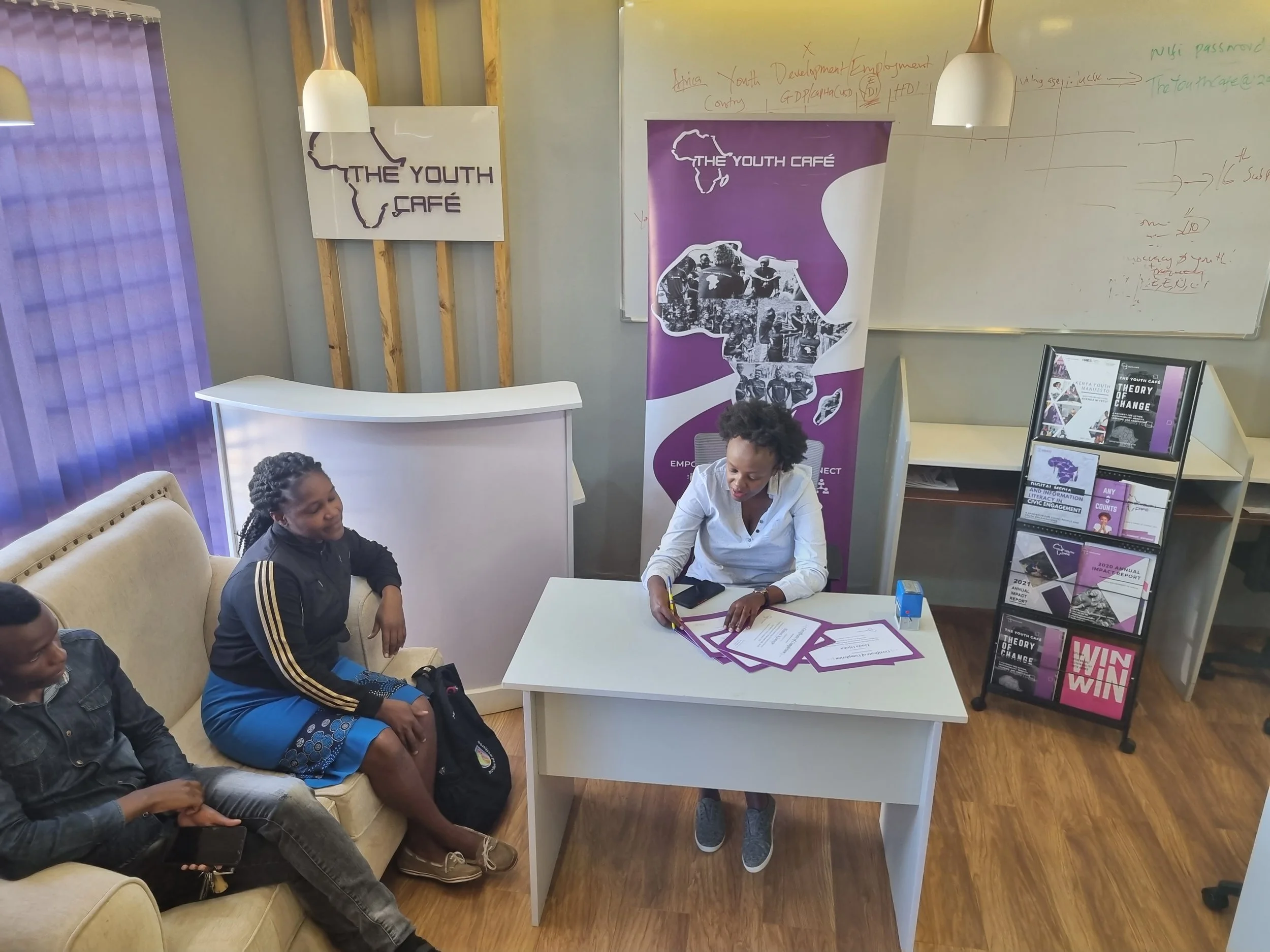The AFS Forum 2024 underscored and reaffirmed the fundamental importance of food systems, and the critical situation faced by the food and agriculture sectors on this continent. Under the theme “Innovate, Accelerate, and Scale: Delivering Food Systems Transformation in a Digital and Climate Era”, it set out to launch Africa’s food systems into a transformative era based on sustainability and resilience.
Human Rights and Democracy Festival 2023 | Freedom, Justice and Equality for All
On December 8, 2023, The Youth Cafe, collaborating with other partners, ForumCiv, Badili Africa, and Africa Uncensored, organised a national Human Rights celebration event at the Daystar University Auditorium on Valley Road, Nairobi, Kenya. The theme, "Navigating the Consequences of Economic Shocks on Human Rights: Dignity, Freedom, and Justice for All," occurred from 9:00 am to 5:00 pm. This gathering drew a diverse audience of at least 300 participants, representing a cross-section of society, including youth, community members, persons with disabilities, and women.
Assessing African Youth Development: Insights From The African Youth Development Index
The Youth Cafe is developing its first iteration of the African Youth Development Index (AYDI) 2024, focusing on youth development in the continent. The relentless spirit of African youth has inspired this initiative and aims to provide an in-depth assessment of the youth's progress, challenges, and success stories. The AYDI 2024 showcases a keen focus on areas such as education, health, employment, civic participation, and environmental engagement.
The Youth Café Empowers Youth Through Participatory Budgeting To Enhance Accountability And Transparency
The Youth Café (TYC) is a trailblazer in youth empowerment in Kenya, utilizing Participatory Budgeting (PB) to drive accountability, transparency, and good governance. Through its innovative PB approach, TYC has successfully mobilized over 76,000 young people across 12 counties, empowering them to take part in crucial budgetary decisions. With a staggering $3 million USD allocated through this process, TYC has set a new standard for how public resources can be managed effectively and ethically when young people are at the helm. This initiative not only empowers youth to influence public resource allocation but also transforms them into vigilant custodians of government accountability, ensuring public funds are directed toward community-driven solutions.
Financial Literacy Program For The Kenyan Youths
The Financial Literacy program for Kenyan youths is a collaboration between The Youth Cafe and the Co-operative Bank of Kenya. Throughout the project, The Youth Cafe leads the management while staff at Cooperative Bank form part of the core management team, and leads the partnership's technical excellence. This project is aimed to assist in demystifying the banking sector and offer expert advice, and educate the youth to improve their ability to make sound financial decisions in areas such as Credit and Debt:
Steering The Media Literacy Week
Speech By UN Women Executive Director Phumzile Mlambo-Ngcuka | International Youth Day, 2020 | Youth Engagement For Global Action
Today, as we celebrate International Youth Day, UN Women recognizes the immense value of young people like Doreen who are at the forefront of global action for change, both in responding to the pandemic and in working to address the systemic inequalities it has unearthed. Young people bring fresh legs to the race, fresh eyes to see things from new perspectives, new energy for the long road ahead and sure-footed adaptability to change, despite themselves facing complex challenges and vulnerabilities brought on by the pandemic.
Impact of the Global Compact on Communities | The Youth Cafe
According to UNICEF, the world population is expected to reach 8 billion by 2025. In less than a decade, the sustainability of the next billion will be a task for the current generation of youth to address. While middle-high income countries are experiencing low fertility rates, aging populations, and a declining workforce capable of supporting the growing dependency load, low-middle income countries are continuing to experience high fertility rates (though it is now just entering decline), and a significant youth population which is comparatively larger than the other age groups. Countries are opting to either maintain or raise their capacity for immigrants to address aging populations, a trend that is increasing all across the board. As this is the case, labour migration is projected to continue as a major response to these demographic trends.









